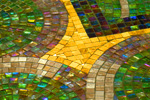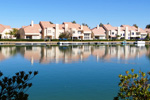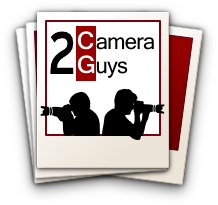Best entry-level DSLR Cameras
- Shootout
- Canon Rebel T2i
- Nikon D3200
- Nikon D3100
- Pentax K-r
- Canon T3
- Advice and Conclusion
Buyer Advice
So you're ready to get a DSLR and move up into the world of Serious Photography (note the capital letters). Good for you. There's a reason why nearly every professional photographer uses some variety of DSLR, and it's not just because everyone else is doing it. DSLR cameras make higher-quality images and give the user more control than any point-and-shoot camera on the market. Their large image sensors create detailed images that no small-sensor camera can match. DSLR cameras also typically give the user more complete control over the image-making process, allowing the user to change anything and everything about the way the picture is made. Point-and-shoot cameras, on the other hand, make most of your decisions for you, either due to hardware limitations or just because most point-and-shoot owners don't want to mess with that stuff.
Early on in this shootout, I mentioned photography as a career. It is important to note that owning a DSLR does not automatically make you a photographer, so don't put in your two weeks' notice at your day job just yet. More important than owning a high-quality camera is knowing how to use it. While almost all DSLRs have a fully-automatic mode that will do the thinking for you, you're really wasting the camera's potential if you shoot on automatic. The whole reason to get a DSLR, beyond making better pictures, is to learn how to make artistic decisions about the pictures you take and create your own unique style. Features like the Nikon D3100's Guide Mode help to teach you how the camera works while you use it, and for photography newbies it can be very helpful.
Don't be surprised if the first pictures you take don't come out exactly how you want them. Trial and error is part of the process, and you shouldn't feel discouraged. Just figure out what went wrong, learn what you can do to correct that in the future, and then go out and keep shooting. All in all, the most important thing to do with your new hobby is enjoy it, challenge yourself, and make the best pictures you can.
Conclusion
While the cameras in today's shootout are ranked, the rankings have very little to do with picture quality. You'll notice by looking at our Photoscope utility that all four produce an excellent picture. Unlike with point-and-shoots, image quality amongst similarly-priced DSLRs tends to be largely the same. It boils down to features, and which camera is right for you depends almost entirely on which camera does what you need it to do. An aspiring sports photographer would find the Nikon D3100 almost useless with its pokey three-frame-per-second continuous mode, and would opt for the Pentax K-r. On the other hand, a videographer would not be impressed by the K-r's 720p maximum resolution and lack of exposure control.
The other important thing to do, if you can, is go find a store and hold these cameras in your own two hands. What is awkward for some might be just right for others, and camera manufacturers do not do anything without a reason. If someone feels that the Canon T3's flash button is in an awkward position, someone else will think it is perfect.
At the end of the day, the camera isn't even half of the equation. Far more important is what you learn to do with that camera. To that end, the perfect camera for you is the one that will "get out of your way" and let you capture the image you want. The Canon Rebel T2i is the best entry-level DSLR in this regard at the moment, but stiff competition from Nikon and Pentax will ensure that the field remains exciting for years to come.
In This Shootout:
Shootout
Canon Rebel T2i
Find out why the Canon Rebel T2i is the Best Entry-Level DSLR Camera
Nikon D3200
The Nikon D3200 is a close second for stills and video
Nikon D3100
The Nikon D3100 comes in third place
Pentax K-r
The K-r's fast continuous shooting make it a good option for sports and wildlife
Canon T3
The T3 is the most budget-friendly option, but comes up short on features
Advice and Conclusion
Some advice to first-time buyers of DSLR Cameras










